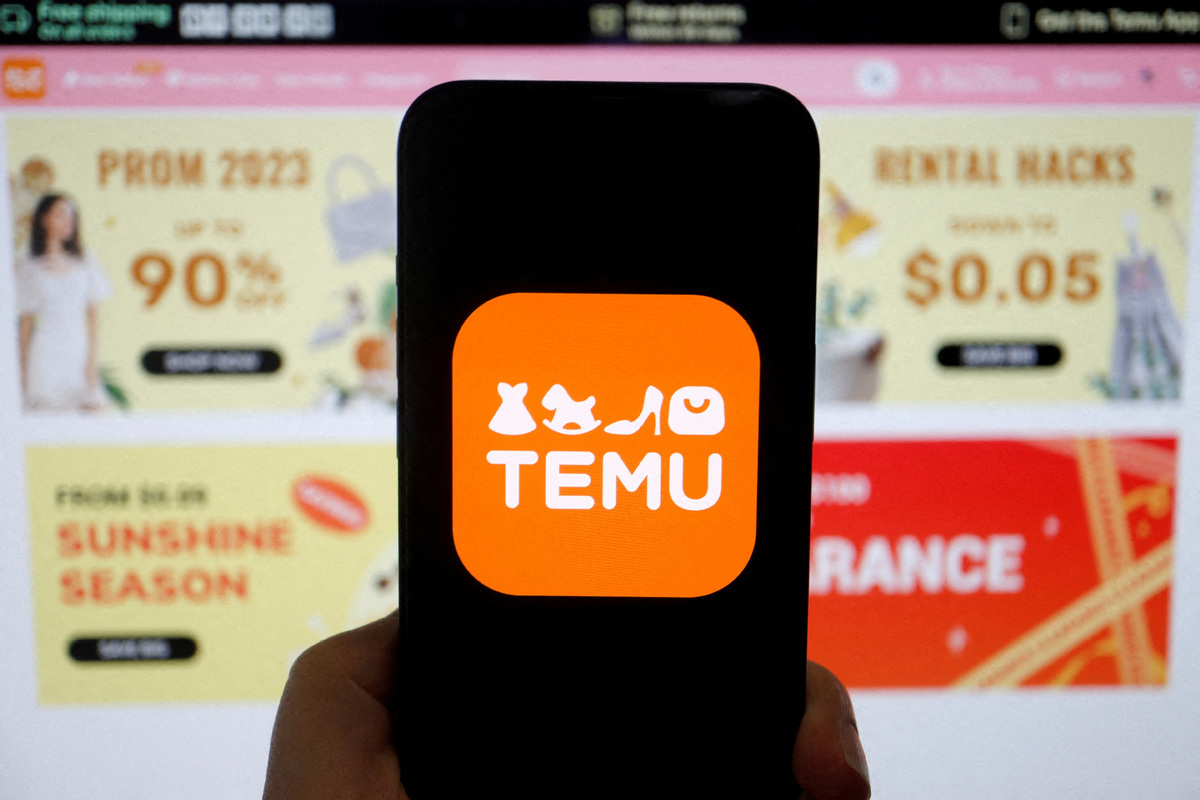Fashion brands that started in China battle in US
By MINGMEI LI in New York | chinadaily.com.cn | Updated: 2023-12-01 11:35

Two fast-fashion online giants originally based in China are engaged in a fierce battle for US market share.
PDD Holdings Inc, the parent company of e-commerce platform Temu, on Tuesday released outstanding financial results for the third quarter, which showed revenue rose 94 percent year-on-year to 68.84 billion yuan ($9.7 billion) in the quarter ending Sept 30.
PDD's net income attributable to ordinary shareholders rose to 15.54 billion yuan ($2.18 billion) in the third quarter, from 10.59 billion yuan ($1.49 billion) a year earlier.
Shares of PDD jumped as much as 18 percent intraday in trading on the Nasdaq Stock Market on Tuesday. On Thursday, the stock closed at $147.44, up 4 percent after earlier reaching a new 52-week high of $147.65.
Temu's results showed a rise in "payment processing fees", which implies a growing presence and activity in international markets.
"PDD's overseas initiative Temu was the major driver for revenue growth," said Xiaoyan Wang, analyst at 86Research.
Meanwhile, Temu's top competitor, Shein, has confidentially filed for an initial public offering in the US. Shein could launch its share sale sometime in 2024.
Shein, headquartered in Singapore, was valued at about $66 billion during a fundraising round in May, according to The Wall Street Journal. A potential valuation for Shein's IPO was estimated at $90 billion, according to Bloomberg.
Both e-commerce fashion giants have captured a substantial share of the international market, outpacing several fast-fashion giants in the US.
The companies' success is attributed to the offering of affordable and trendy clothing and accessories, which has resonated with teenagers and young adults.
Shein's market dominance is evident in its 50 percent share of US sales among major fast-fashion companies as of last November, according to Bloomberg. That far surpasses competitors like H&M and Zara, with 16 percent and 13 percent, respectively.
Shein and Temu both promote discounts and offer customers lower prices and flexible return and exchange policies to attract more customers.
"I wanted to try Shein because, at the time, there was such big hype. All my friends were ordering a lot of stuff, and that was so cheap, so I definitely wanted to try it," Saga Hallberg, 33, told China Daily at a Forever 21 store in Times Square. "All my friends and my mom have bought a lot of stuff from Temu as well. But I didn't because I know it's the same thing (as Shein).
"The clothes are kind of like H&M, and I don't feel like it's that big of a difference. The product is about the same at a far lower price. I‘ve purchased twice on Shein; well, you get what you paid for," she added. She said she shops at Shein for clothes, and her mother usually buys products for her home and kitchen on Temu.
Christina Melendez, who also was shopping at the Forever 21 store, told China Daily that she likes Shein because the prices are great.
"The product, the quality and the pricing. I almost shop at Shein every week," she said, adding that some products from Temu aren't the best, "but it's worth it. It depends on what you are getting."
In August, Shein partnered with SPARC Group — a collaboration between US-based Authentic Brands and Simon Property Group — to broaden its reach from online to the SPARC Group's brick-and-mortar Forever 21 stores.
"I really don't know my measurements that well, so I need to try it on," Raquel Martinez told China Daily at the Forever 21 store.
She said she would like to try Shein once after its Forever 21 collaboration so she could try on the clothes herself.
Lin Mengfei, a designer at Shein, told China Daily: "When the collaboration started, my role was solely in design, providing detailed information about fabrics and patterns, et cetera.
"Then they took over everything else, such as making prototypes, cutting fabrics, printing patterns, and then moving on to production and sales, including after-sales management, all handled by them."
Agencies contributed to this story.
























